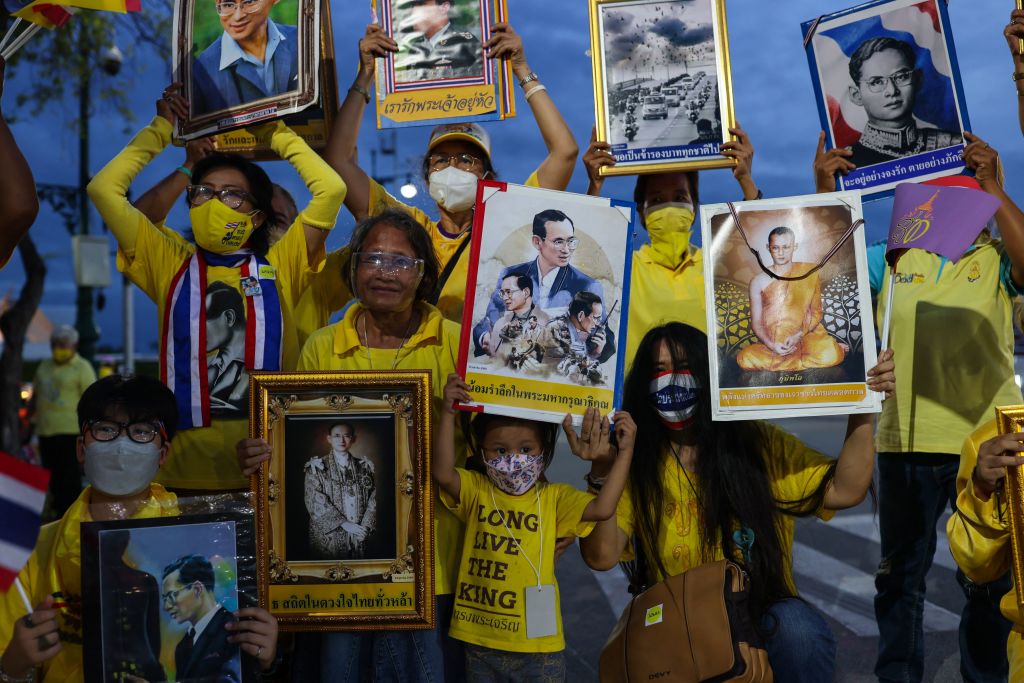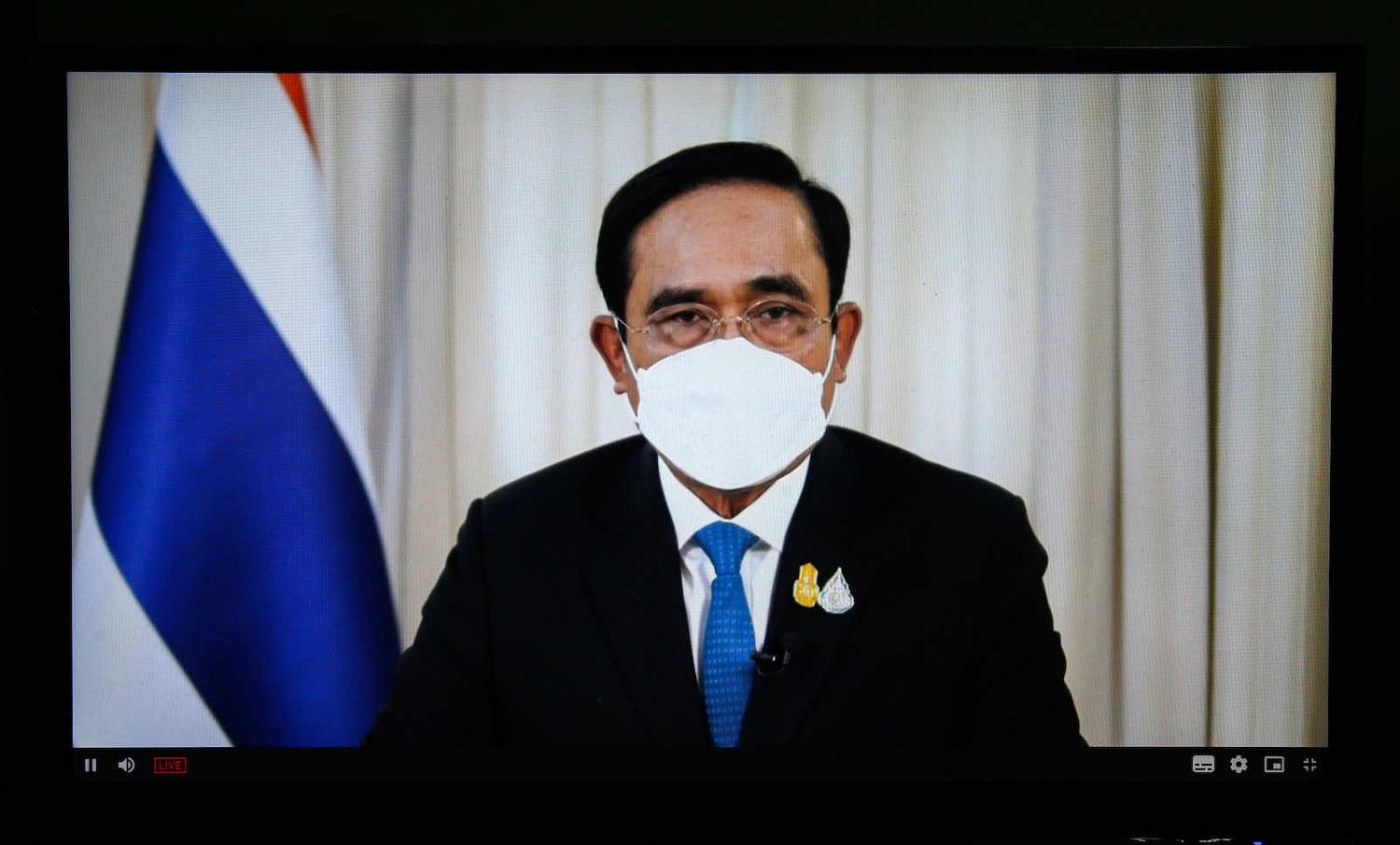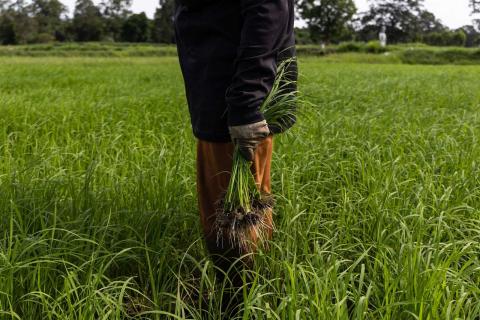The Thai state is increasingly intolerant of dissenting voices. But, instead of ending opposition, the government’s tightening restrictions will drive contrarian voices underground. The administration would be better advised to provide space for alternative points of view to be expressed, and to engage positively with their owners. Its current path will harden opposition, and make it harder to arrive at a peaceful, negotiated compromise.
Thailand has long been known for its harsh treatment of people who are held to have defamed its monarchy. Its royal defamation law, usually referred to by its French name lèse majesté, is more draconian than its equivalents in the few other monarchies which also retain this anachronistic provision. In January, a 64-year-old woman, Anchan Preelert, was sentenced to more than 43 years’ imprisonment for sharing recordings criticising King Bhumibol and then-crown prince (now king) Vajiralongkorn on social media. This is a longer term than most murderers receive, for whom the typical sentence ranges from five-to-20 years.
In the early days of King Vajiralongkorn’s reign, there was some hope the lèse majesté provisions were being wound back, and that Thailand could follow the path of modern monarchies by consigning the law to history. In June 2020, former junta leader, and current prime minister, Prayuth Chan-ocha said the king “instructed [him] personally over the past two to three years to refrain from the use of the [lèse majesté] law.”
Even some of the more moderate monarchists are concerned the lèse majesté law in its current form is too broad in its application.
However, subsequent events suggest the King is now fine with the law being used against his subjects. He has not pardoned Anchan, nor reduced her sentence. Nor has he intervened in the cases of the 156 people charged with lèse majesté since 2020 (though it is notable that none have faced court yet).
It can’t be ruled out that the King has stayed Prayuth’s hand from actually prosecuting those charged. However, such an unacknowledged royal intervention would not bode well for the rule of law in Thailand.
Thailand is also cracking down on those seeking to reform the monarchy through parliamentary or legal processes. On 10 November, the Constitutional Court ruled that even calling for royal reform or the abolition of the lèse majesté law was illegal, saying that such demands constituted an attempt to overthrow Thailand’s system of government with the king as head of state (Section 49 of the Constitution).

Soon after the court ruling, Lieutenant General Manakit, who heads the National Broadcasting and Telecommunications Commission, warned the media that reporting on calls for royal reform could also constitute a breach of the law. He added that reporters should not interview protesters or those who support their demands, nor to broadcast protesters’ speeches.
The NBTC’s move will worsen press freedom, which was already under threat. The media in Thailand already operates under official or self-censorship. Foreign media broadcasts discussing the monarchy or criticising the government are censored. And local media are usually careful to avoid sensitive subjects, to avoid the prospect of legal action.
Moveover, the Constitutional Court’s ruling has given fresh heart to the more extreme monarchists, who are seeking to expel Amnesty International from Thailand, claiming the organisation’s letter-writing campaign seeking the release of some of those demanding royal reforms was tantamount to inciting aggression towards the monarchy and undermining national security. Although Prayuth is not throwing his full weight behind their push, he has met them half-way, ordering Amnesty International be investigated, and punished if it is judged to have broken the law.
Other critics of the government are apparently being targeted, too. On 24 November, Apple alerted at least six Thai activists and researchers that their iPhones had been targeted by “state-sponsored attackers”. And on 27 November, authorities denied a French businessman, a long-time resident of Thailand and an internet critic of the Thai government, permission to re-enter Thailand, where his Thai wife and children live, reportedly claiming he was a “threat to national security”.
It is too early to say what the full ramifications of the court decision and authorities’ subsequent actions mean for stability and social cohesiveness in Thailand. Even some of the more moderate monarchists are concerned the lèse majesté law in its current form is too broad in its application. But, by stifling free expression, authorities are shutting off any prospect of change that was broadly acceptable to all. By driving discussion of royal reforms underground, they also risk these views becoming more radical over time. With the attitudes of younger Thais already differing from their more socially-conservative seniors, the authorities’ measures may, perversely, accelerate royal reform within a generation.
The court ruling and Thai authorities’ subsequent actions may also embolden ultra-royalists to revive their witch-hunts against critics of the monarchy living here. A retired general, Dr Rienthong Nanna, previously incited Thais to track down royal critics overseas, including in Australia. A Sydney man lost his job as a result of online harassment, his boss saying, “I already kicked Somsak out because for safety reasons, I didn’t want anyone to get hurt”.

